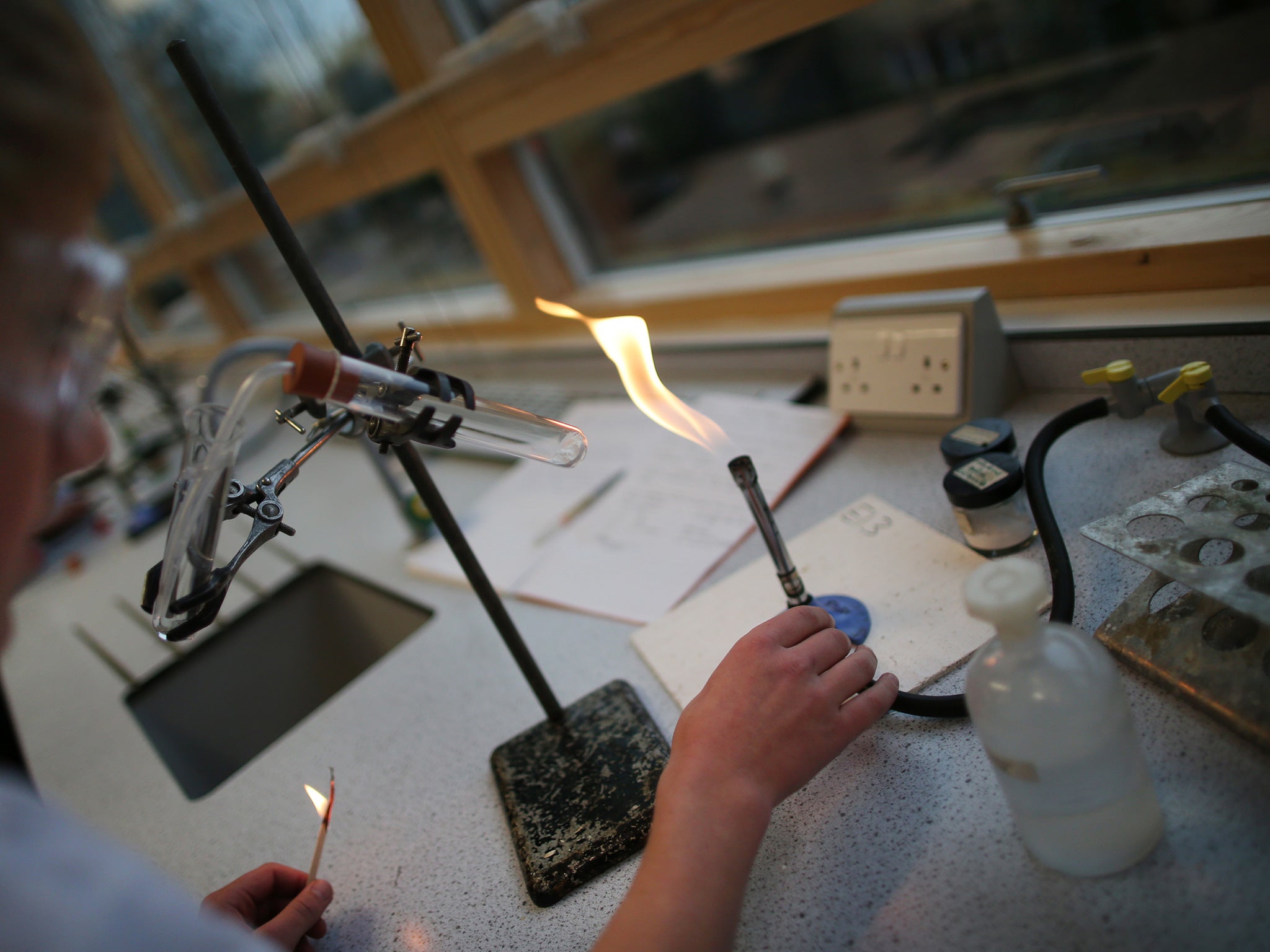Students mastering basic maths and science could earn economy more than £2 trillion extra a year, study claims
OECD ranks the UK 20th out of 76 nations in basic skills in the subjects

The UK economy could rake in an extra £2.33 trillion a year if every student in the country mastered a basic level of skills in maths and science, according to a report from the Organisation for Economic Co-operation and Development.
It ranks the UK 20th in a table of 76 nations for the ability of its students to master the basics - behind Poland, Slovenia and Vietnam amongst others. Around 20 per cent of 15-year-olds are below the basic minimum standard when it comes to their maths skills.
Translated into cash terms, it means the UK economy would grow by an estimated $3,650 trillion if every pupil in education reached a a basic level of numeracy in maths.
The report goes on to predict what would happen if every country improved its pupils’ ability in maths and science by an average 1.67 points a year up to 2030 and says that this would net the economy £5.6 trillion extra - or $8,653 trillion dollars.
Andreas Schleicher, director for education and skills at the OECD, said: “The increase in wealth among the high income countries (from universal basic skills) is greater than what they have to spend on education (to achieve it).
“If we only did a decent job in schools education would be free for everyone, We would generate a lot more income that what we lost by not doing a decent job.”
In a foreword to the report Dr Schleicher and Quan Tang, assistant director general of UNESCO, add: “If there is one lesson we have learned from the global economy over the past few years, it is that we cannot solely bail ourselves out of an economic crisis, we canot solely stimulate ourselves out of an economic crisis and we cannot just print money to ease our way out of an economic crisis.
“We can only grow ourselves out of bad economic conditions and, in the long term, that depends more than anything on equipping more people with better skills to collaborate, compete and connect in ways that drive our societies forward - and on using those skills productively.”
They added: “The economic output that is lost because of poor education policies and practices leaves many countries in what amounts to a permanent state of economic recession.”
Top of the league table for skills was Hong Kong-China - one of three countries where less than 10 per cent of 15-year-olds lacked basic skills in maths and science. The other two were Estonia and Korea. The top performing European nation was Finland with 10 per cent.
Bottom of the table with 90 per cent of young people lacking basic skills was Ghana.
Join our commenting forum
Join thought-provoking conversations, follow other Independent readers and see their replies
Comments
Bookmark popover
Removed from bookmarks